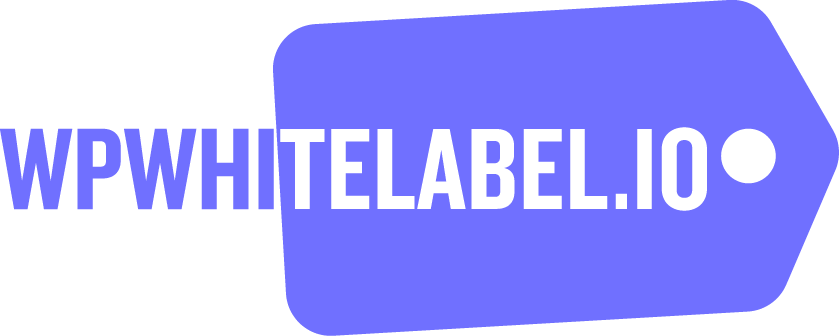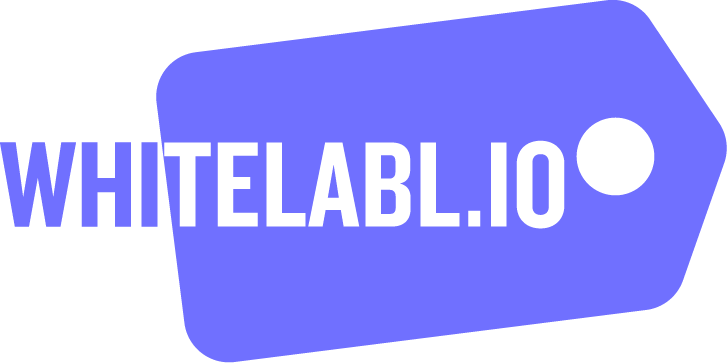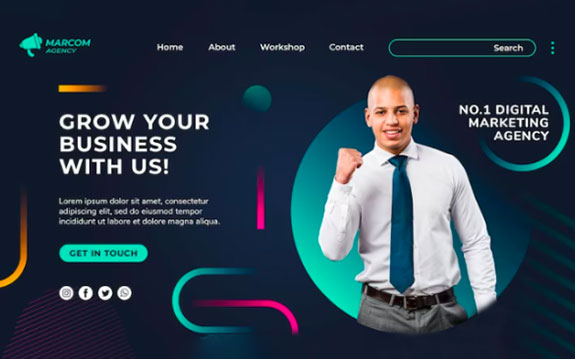In today’s global marketplace, businesses need to reach diverse audiences across different languages and cultures. A multi-language website is a powerful tool for achieving this, enabling companies to communicate effectively with customers worldwide. However, developing and managing a multi-language website can be complex and time-consuming, especially for agencies handling multiple projects. This is where white-label WordPress solutions come into play.
White-label WordPress services offer agencies a streamlined way to deliver high-quality, multi-language websites to their clients without the burden of in-house development. In this article, we’ll explore how white-label WordPress solutions can simplify multi-language website development, enhance efficiency, and drive business growth.
Understanding the Challenges of Multi-Language Website Development
Creating a multi-language website involves more than just translating content. Developers must consider several factors to ensure that the site is functional, user-friendly, and optimized for global audiences. Some of the common challenges include:
Content Translation and Localization: Translating content accurately while maintaining the original meaning and tone can be challenging. Localization goes beyond translation, requiring the adaptation of content to suit cultural preferences and local norms.
SEO for Multiple Languages: Multi-language websites require careful SEO strategies to ensure that each language version ranks well in search engines. This includes managing hreflang tags, optimizing meta tags in different languages, and creating localized URLs.
User Experience and Navigation: A seamless user experience is crucial for multi-language websites. This includes easy navigation between languages, consistent design across different language versions, and the ability to handle right-to-left (RTL) languages.
Content Management: Managing content across multiple languages can be time-consuming, especially when updates are needed. Developers must ensure that the content management system (CMS) supports efficient content updates without duplication of efforts.
Technical Implementation: The technical setup of a multi-language website involves configuring the CMS to support multiple languages, integrating translation plugins or services, and ensuring compatibility with other site features.
Cost Comparison: In-House vs White Label WordPress Development
The Benefits of White-Label WordPress Solutions for Multi-Language Websites
White-label WordPress solutions offer a range of benefits that can help agencies overcome the challenges of multi-language website development. These benefits include:
Scalability: White-label services allow agencies to scale their operations without expanding their in-house teams. By partnering with a white-label provider, agencies can handle more multi-language projects simultaneously, increasing their capacity to serve clients.
Expertise and Specialization: White-label WordPress providers typically specialize in specific areas, such as multi-language website development. This means agencies can leverage the provider’s expertise to deliver high-quality, fully optimized websites to their clients.
Cost-Effectiveness: Outsourcing multi-language website development to a white-label provider can be more cost-effective than handling it in-house. Agencies can save on hiring additional staff or investing in specialized tools and resources.
Faster Turnaround Times: White-label providers often have streamlined processes and dedicated teams, allowing them to complete projects more quickly. This means agencies can deliver multi-language websites to their clients faster, improving client satisfaction.
Focus on Core Competencies: By outsourcing multi-language website development, agencies can focus on their core competencies, such as client acquisition, strategy, and creative design. This leads to better overall performance and growth.
A Quick Guide: White Label WordPress Development for Digital Agencies
How White-Label WordPress Solutions Streamline Multi-Language Website Development?
White-label WordPress solutions streamline the development process through several key features and services:
Multi-Language Plugins and Integration: White-label providers often have experience with popular multi-language plugins like WPML, Polylang, and Weglot. They can seamlessly integrate these plugins into WordPress sites, ensuring that content is easily translated and managed.
Custom Language Switchers: A well-designed language switcher enhances the user experience by allowing visitors to easily switch between languages. White-label providers can create custom language switchers that align with the client’s brand and design preferences.
Localization Services: In addition to translation, white-label providers can offer localization services to adapt content for different cultural contexts. This includes adjusting images, currencies, date formats, and other elements to suit the target audience.
SEO Optimization for Multiple Languages: White-label providers can implement advanced SEO strategies for multi-language websites. This includes setting up hreflang tags, optimizing meta descriptions, and ensuring that each language version is indexed correctly by search engines.
Content Management and Workflow Automation: To manage content efficiently, white-label providers can set up automated workflows for content updates across multiple languages. This ensures that changes are reflected consistently across all language versions without manual intervention.
Testing and Quality Assurance: Multi-language websites require thorough testing to ensure that all language versions function correctly and provide a consistent user experience. White-label providers conduct rigorous testing to identify and fix any issues before the site goes live.
Key Considerations When Choosing a White-Label WordPress Provider
When selecting a white-label WordPress provider for multi-language website development, agencies should consider the following factors:
Experience with Multi-Language Websites: Look for a provider with a proven track record of successfully delivering multi-language websites. Ask for case studies or examples of previous projects to assess their expertise.
Understanding of Localization: The provider should have a deep understanding of localization and its importance in multi-language website development. This includes knowledge of cultural nuances, language-specific SEO, and user experience design.
Technical Expertise: Ensure that the provider has the technical expertise to handle complex multi-language website setups, including plugin integration, content management, and SEO optimization.
Customization Capabilities: Choose a provider that offers customization options to meet your client’s specific needs. This includes custom language switchers, unique design elements, and tailored content management workflows.
Communication and Collaboration: Effective communication and collaboration are essential for successful white-label partnerships. Ensure that the provider is responsive, transparent, and willing to work closely with your team to deliver the best results.
Which is the Best: DIY vs DIFM vs White Label Website Development
To Sum Up
In a globalized world, multi-language websites are essential for businesses looking to reach diverse audiences. White-label WordPress solutions provide agencies with the tools and expertise needed to streamline multi-language website development, making it easier to deliver high-quality, optimized websites to clients.
By partnering with a white-label provider, agencies can overcome the challenges of multi-language website development, enhance efficiency, and scale their operations. With the right white-label partner, agencies can offer their clients world-class multi-language websites that drive growth and success in international markets.



